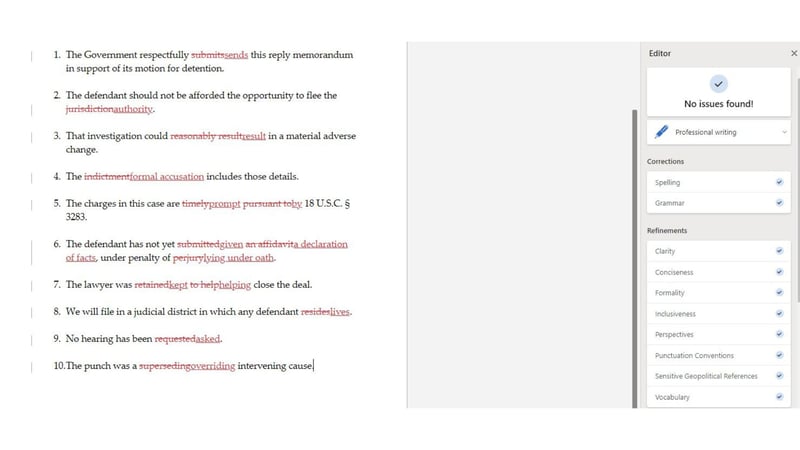Microsoft Word’s New Editor: Lawyer Beware?
Legal writing is a specialized field that requires precision, clarity, and adherence to specific formats and terminologies. While Microsoft Word's Editor tool offers basic grammar and spell checks, it may fall short in several areas crucial for legal documents.
 You’ve probably seen a spell checker turn “tortious interference” to “tortuous interference.” Ouch!
You’ve probably seen a spell checker turn “tortious interference” to “tortuous interference.” Ouch!
Legal Terminology: Legal writing often involves complex terminology that general language tools may not recognize or understand. This can lead to incorrect suggestions or failure to detect errors in legal terms.
Contextual Analysis: The meaning in legal writing can be highly context dependent. Microsoft Word’s Editor might not effectively assess the context in which certain words or phrases are used, potentially leading to misinterpretations or incorrect corrections.
Argumentative Structure: Legal arguments require a logical, coherent structure to be persuasive. A general language tool might not provide insights or suggestions on improving the argumentative flow of a legal document.
Writer Preferences: Legal writers often have specific preferences for style and wording. While Microsoft Word offers a few general suggestions to improve your writing, specialized tools like BriefCatch offers a number of suggestions plus specific examples in context, allowing legal writers to maintain their preferred voice and style.
Meeting the Specialized Needs of Lawyers. Overall, while Microsoft Word's Editor is a powerful tool for general writing, its one-size-fits-all approach might not fully cater to the nuanced and specialized needs of legal writing. Legal professionals might require more specialized software that understands the intricacies of legal language, formatting, and argumentation to ensure their documents meet the high standards required in the legal field.
Revolutionize your legal writing with BriefCatch. Try it free for 7 days.
 By
By

